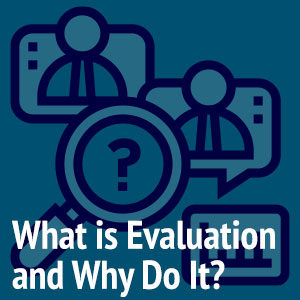
Most organizations conduct evaluations because they want to determine if they are making a difference in the lives of the people that they serve. Determining program effectiveness, showing the specific effects of programming, and using data to strengthen programs, are all important and laudable reasons for carrying out an evaluation.
In recent years, however “accountability” has become a driving force for many organizations (schools, government agencies, and non-profits) to conduct evaluations. “Accountability” has become a watchword—especially in the educational and non-profit sectors. While accountability has its legitimate purposes (i.e., demonstrating to stakeholders that an organization or program is responsible, ethical, committed to achieving its goals, etc.) too often the desire to demonstrate accountability, especially legal compliance, overshadows the use of evaluations to enhance program effectiveness and strengthen program outcomes.
Brad Rose Consulting, Inc. is committed to evaluations that provide an evidence- based account of a program’s effects. Equally importantly, however, we are committed to designing and conducting evaluations that help to strengthen a program (and its host organization) so that it can better achieve its desired outcomes. We work with organizations to objectively find out what’s working and what needs to be strengthened.
When, for example, we work with educators (superintendents, principals, teachers and school staff) and school systems to evaluate their educational programs, we design evaluations that BOTH show program effectiveness AND provide data-based insights that help strengthen future outcomes. We understand that educators need BOTH to know if students are learning AND how to enhance future student achievement. Such evaluations require not merely collecting static and tiresome data, but implementing evaluations that richly show how educational initiatives can be made more effective. Often such evaluations transcend the collection merely of student test scores and look at the multiple factors that influence student achievement. We deliberately work to make our evaluations constructive opportunities for strengthening instruction and enhancing student achievement. To learn more about our work in education visit our Higher education & K-12 page.
More information about accountability:
“Accountability” in Education Week
“What Does Accountability Mean in Education?”
“Accountability in Higher Education,” by the Center for Studies in Higher Education
“Why Teacher Evaluation Shouldn’t Rest on Student Test Scores”


